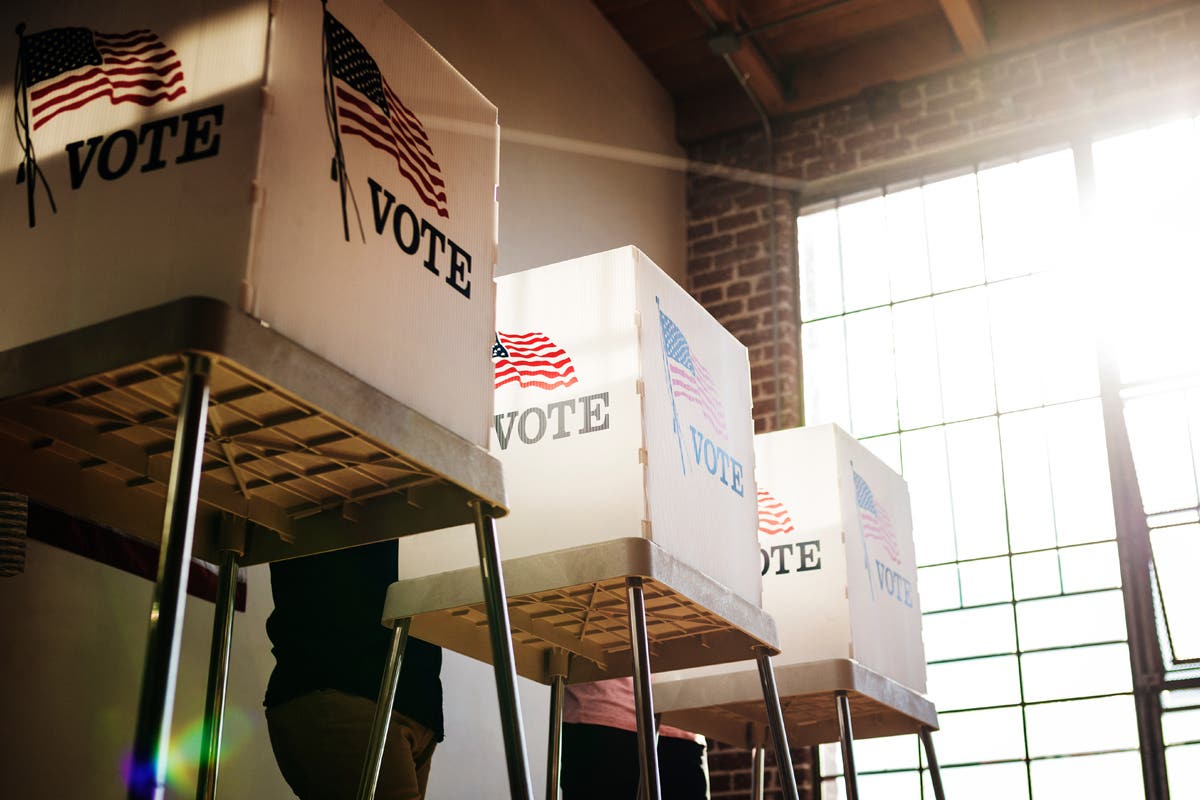As Election Day arrives, voters in several U.S. states will determine the future of marijuana legislation within their borders. This year, marijuana-related ballot measures have emerged in four states, offering citizens the chance to shape policies around cannabis and, in one state, psychedelic substances. This vote could pave the way for broader access to cannabis, whether for medical or recreational purposes, and introduce new legislation for the regulated use of natural psychedelics.
Florida’s Amendment 3: The Push for Recreational Marijuana Legalization
In Florida, where medical marijuana is already permitted, voters are presented with Amendment 3, a ballot measure to decide on the legalization of recreational marijuana for adults aged 21 and older. If passed, Amendment 3 would enable adults to legally possess, purchase, and use marijuana for non-medical purposes. Beyond personal use, the amendment would extend permissions to licensed entities, such as the Medical Marijuana Treatment Centers, to produce, distribute, and sell marijuana products.
Under the proposed regulations, individuals would be allowed to possess up to three ounces of marijuana, with an additional allowance of up to five ounces in the form of marijuana concentrate. This measure could have a significant economic impact in Florida, as it would broaden the scope of the current marijuana industry while potentially attracting a large market for recreational use.
Nebraska’s Initiative Measures 437 and 438: Medical Marijuana on the Horizon
Nebraska stands out as one of the states where both recreational and medical marijuana remain illegal. This year, voters will have the chance to change that with Initiative Measures 437 and 438, which address the legalization of cannabis solely for medical purposes.
- Initiative Measure 437: This measure focuses on legalizing the possession and use of up to five ounces of cannabis for individuals with a written recommendation from a licensed healthcare provider. This would enable patients to use cannabis as a therapeutic option, potentially aiding those dealing with chronic illnesses or debilitating conditions.
- Initiative Measure 438: Taking medical cannabis legalization further, this measure aims to create a framework for the regulated distribution and dispensing of cannabis. It proposes the establishment of the Nebraska Medical Cannabis Commission, a regulatory body to oversee cannabis production, sales, and distribution by registered private entities. If passed, the measures would enable regulated access to medical cannabis, offering relief to patients while setting strict oversight protocols.
North Dakota’s Initiated Measure 5: Expanding Access to Recreational Cannabis
North Dakota has allowed medical marijuana use since 2016, but this election could bring recreational marijuana into legal standing with Initiated Measure 5. This ballot initiative seeks to introduce new legislation permitting recreational marijuana for adults 21 and up.
Key provisions under Initiated Measure 5 include:
- Legalizing cannabis production, processing, and sales for recreational use
- Establishing a state-regulated system to oversee cannabis businesses and dispensaries
- Providing legal protections for adult cannabis users while allowing employers to regulate employee use
- Ensuring that fees collected from cannabis-related activities are used for administration and oversight
The measure aims to build a robust framework for recreational cannabis while respecting local governance. Local governments, however, would not be able to impose prohibitions on cannabis purchase, sales, or use, although they could impose restrictions on time and place.
South Dakota’s Initiated Measure 29: Recreational Marijuana Legalization with Restrictions
South Dakota, which has permitted medical marijuana since 2020, presents voters with Initiated Measure 29. This measure would legalize recreational marijuana for adults 21 and over, with certain restrictions to address safety and public health concerns.
The primary elements of Initiated Measure 29 include:
- Legalizing the possession, cultivation, distribution, and consumption of marijuana products
- Imposing restrictions on marijuana use in specific locations, including schools and public spaces where tobacco is also prohibited
- Granting employers the authority to set workplace policies around marijuana use
- Allowing property owners to regulate marijuana use on their premises
Under this legislation, adults would be permitted to possess up to two ounces of marijuana, excluding concentrated forms or other cannabis derivatives. Additionally, individuals could grow up to six plants, with a cap of 12 plants per household. These provisions would allow South Dakotans to cultivate personal-use cannabis under state oversight.
Massachusetts’ Question 4: Psychedelic Legalization on the Ballot
In a departure from the other states, Massachusetts voters face Question 4, a measure to legalize natural psychedelics for specific uses. Since Massachusetts has already legalized both medical and recreational marijuana, this measure shifts the focus to psychedelics, including psilocybin, mescaline, and ibogaine.
If passed, Question 4 would permit the following:
- Possession and personal use of specific natural psychedelics by adults 21 and over
- Cultivation of these substances at home in designated areas
- Regulated sales of psychedelics at approved locations under licensed facilitators
- Establishing a regulatory and advisory board to guide the state’s approach to psychedelics
The proposed measure limits possession amounts, allowing adults to have up to one gram of psilocybin, one gram of psilocyn, one gram of dimethyltryptamine (DMT), 18 grams of mescaline, and 30 grams of ibogaine. Cities and towns would have the power to regulate the time, place, and manner of psychedelics-related businesses but would not be allowed to impose outright bans.
{{widget type="Magento\Cms\Block\Widget\Block" template="widget/static_block/default.phtml" block_id="799"}}
Exploring the Broader Implications of Cannabis and Psychedelic Legalization
The potential legalization of marijuana and psychedelics in these states signals a broader societal shift towards recognizing the therapeutic and economic benefits of regulated access to these substances. Each ballot measure reflects unique regional concerns, balancing the need for regulation with increased accessibility for personal and medical use.
Economic Potential and Public Health Considerations
Legalizing marijuana and psychedelics could bring significant economic benefits to each state, from creating new jobs within cultivation and dispensary operations to generating tax revenue. Additionally, states could see reduced law enforcement costs related to minor drug offenses, freeing up resources for more critical public safety efforts.
From a public health perspective, regulated access allows for safer consumption. By establishing a regulated marketplace, states can ensure product quality, dosage accuracy, and age restrictions, which help mitigate the risks of unregulated substances. This approach also creates a framework for educational initiatives about safe use, which is crucial as more adults engage with these substances.
Challenges in Implementing New Marijuana and Psychedelic Policies
While the proposed measures represent positive changes for cannabis and psychedelic advocates, each state will need to navigate several implementation challenges. Regulatory bodies, as suggested in Nebraska and Massachusetts, must be equipped to manage the production, distribution, and oversight of these substances. This includes establishing secure tracking systems to prevent unauthorized distribution and ensuring compliance with safety standards.
Moreover, states will need to consider local community responses, as some regions may resist changes to existing drug policies. Ensuring that municipalities can impose reasonable restrictions may ease community concerns while allowing broader legalization efforts to proceed.
Workplace Policies and Property Rights Under Legalized Use
States like North Dakota and South Dakota have included provisions in their measures that respect the rights of employers and property owners to set specific rules about marijuana use. For employers, this is critical, as it enables businesses to maintain a drug-free workplace if desired, which is particularly important in fields where safety is paramount.
For property owners, the right to regulate marijuana use on private property provides a measure of control and respects the preferences of individuals who may not wish to be exposed to these substances in their environments.
Potential Future Shifts in Federal Policy
As more states move towards cannabis legalization, pressure mounts on federal lawmakers to reconsider national policies. Currently, marijuana remains classified as a Schedule I controlled substance under federal law, creating legal conflicts for individuals and businesses operating in states where marijuana is legal.
There are also growing calls to reevaluate the status of certain psychedelics, especially as clinical research highlights the potential therapeutic benefits of substances like psilocybin and MDMA for conditions such as PTSD and depression. Massachusetts’ Question 4 reflects this trend, as state legislators and voters increasingly acknowledge the therapeutic potential of psychedelics in controlled, supervised settings.
Public Opinion and Legislative Trends
Public opinion on marijuana and psychedelics has shifted considerably over the past decade, with increasing numbers of Americans supporting both medical and recreational legalization. Many voters now see these substances as comparable to alcohol and tobacco in terms of personal choice and responsibility.
This cultural shift has prompted legislators to adopt more progressive stances on cannabis and psychedelic policies, leading to the current slate of ballot measures. The outcomes in Florida, Nebraska, North Dakota, South Dakota, and Massachusetts could serve as a barometer for future legislation in other states.
How These Votes Will Shape the Future of Drug Policy in the U.S.
As the results of these ballot measures come in, they will undoubtedly impact not only the states involved but also the national conversation around drug policy reform. Successful legalization efforts in any of these states could encourage neighboring regions to consider similar measures, while federal lawmakers may feel increased pressure to address inconsistencies between state and national policies.
For now, voters have the opportunity to influence the path forward, setting a precedent for the future of cannabis and psychedelic legalization. This year’s Election Day could mark a new chapter in American drug policy, reflecting a growing trend towards regulation, safety, and personal freedom in the use of cannabis and other natural substances.
{{widget type="FloraFlex\Blog\Block\Widget\ProductList" products_count="5" conditions_encoded="^[`1`:^[`type`:`Magento||CatalogWidget||Model||Rule||Condition||Combine`,`aggregator`:`all`,`value`:`1`,`new_child`:``^],`1--1`:^[`type`:`Magento||CatalogWidget||Model||Rule||Condition||Product`,`attribute`:`category_ids`,`operator`:`==`,`value`:`93`^]^]" template="FloraFlex_Blog::widget/productlist.phtml"}}









